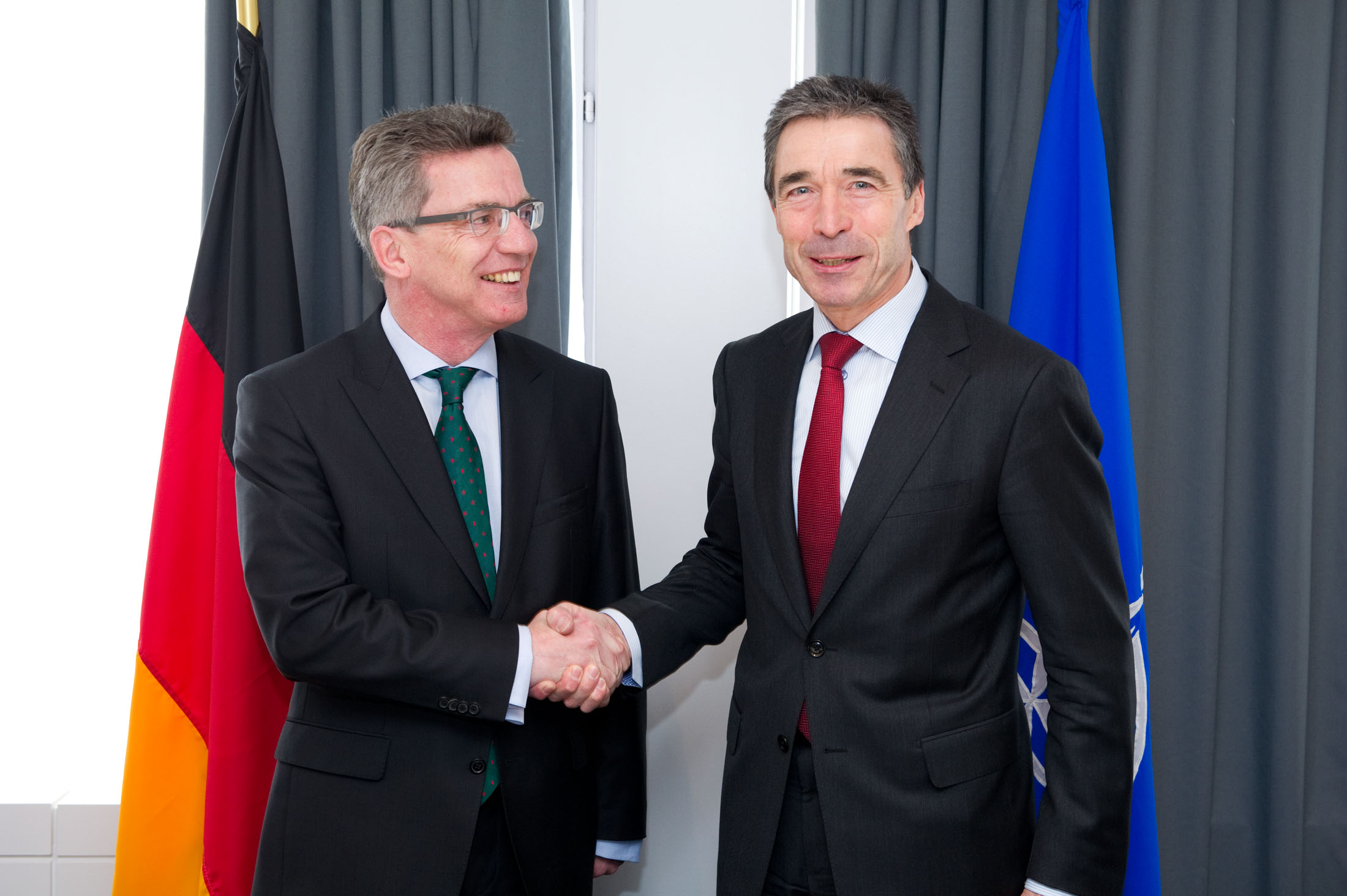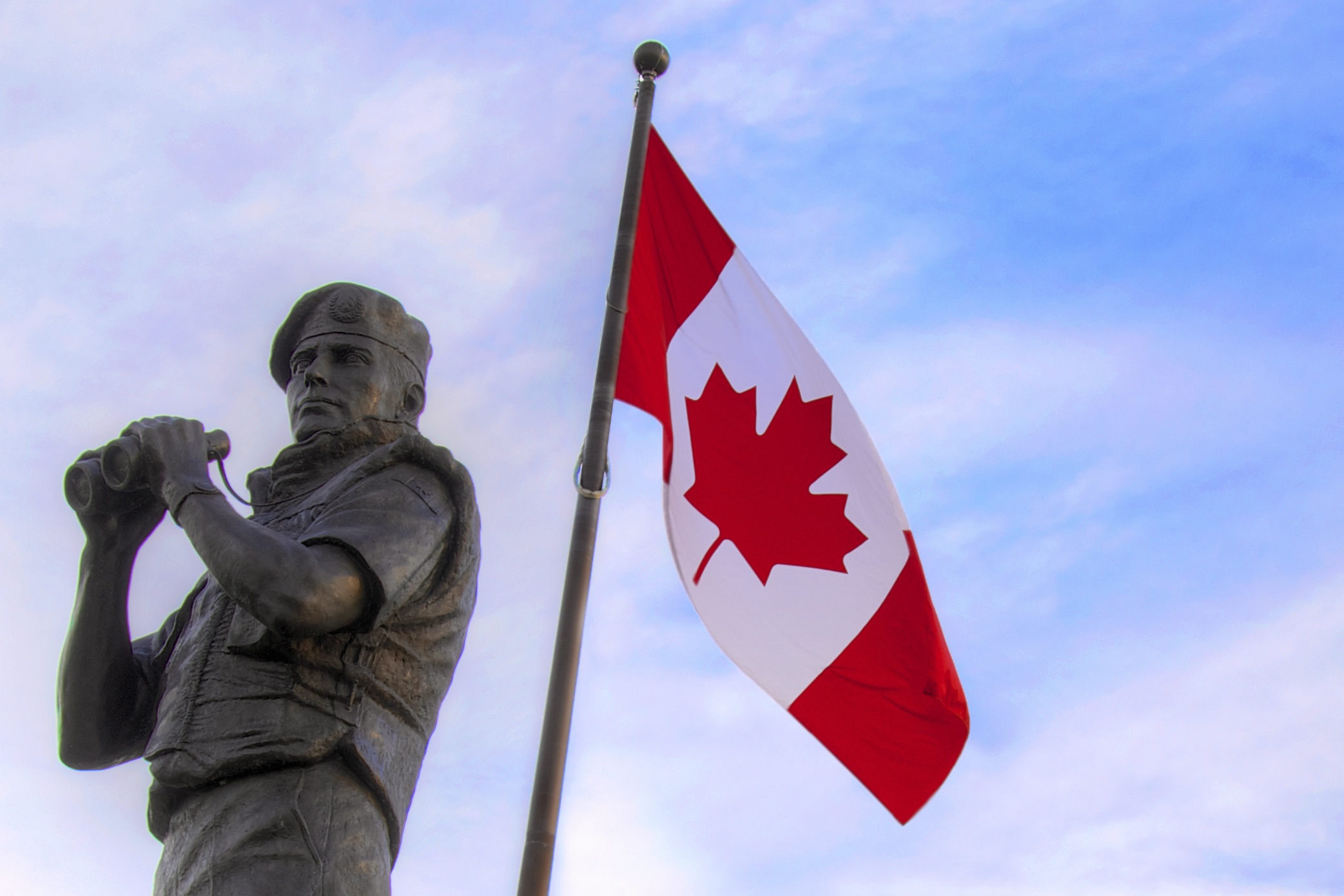NATO Headquarters are currently home to a heated debate over a bold new proposal for reform of the Alliance. Thomas de Maiziere, the German Defense Minister and prospective candidate for the position of NATO Secretary General when Anders Fogh Rasmussen steps down, recently made headlines with a proposal for wholesale reform of NATO.
A Bold Proposal
The German proposal, under the so-called “Framework Nations Concept”, centres around the idea of clusters within the Alliance. Each such cluster would be led by one of the larger NATO members, as has already been practiced in Afghanistan, where major countries hold Regional Command in the different theatres, such as Germany itself in Northern Afghanistan.
Under the German proposal, this type of co-operation would extend to procurement processes as well as operations planning, and become an intrinsic part of NATO’s command structure. It would allow larger countries with broadly based militaries to provide an umbrella for the specialized militaries of smaller countries. The logical leaders of these clusters would in all likelihood include Germany, France, the United Kingdom and Italy.
One of the main drivers of the proposal is the unequal burden sharing within the Alliance, especially the reliance on US spending and capabilities. Pooling resources in clusters would allow the country groupings to achieve in tandem the kind of capabilities that they do not have individually.
Contentious Issues
On Tuesday, October 22th, the British Defence Minister publically came out in favour of the proposal, arguing that it would provide a way around operational delays in NATO missions. The Secretary General, Anders Fogh Rasmussen, with whom de Maiziere had already privately discussed the proposal in June, has also endorsed the idea.
While some countries, including the United States, have expressed their support for the idea, others, such as France, which sees the proposal as an infringement on its national sovereignty, are vehemently opposed.
The French antagonism seems odd, in a way. Under the Lancaster House Treaties, signed between France and the United Kingdom in 2010, the two countries have begun co-operating unprecedentedly closely in defence matters, including equipment pooling and even co-operation in the stewardship of the two countries’ nuclear weapons stockpiles, an immensely sensitive national security topic. This type of co-operation could serve as a great model for further co-operation.
In many ways, this proposal is in line and indeed an extension of NATO’s Smart Defense program, whereby countries coordinate their procurement process so as to minimize duplication and allows for countries to specialize in their defence capabilities.
There are certain obvious drawbacks to the German proposal. For one, smaller nations putting their armed forces under the command of a cluster leader may end up being held hostage to the defence policies of their lead country. This could end up being a problem especially for countries under the German wing, as every German military action needs to be sanctioned by the parliament, the Bundestag, which may lead to significant delays in deployment.
In addition, specialization by countries within a cluster could lead militaries, especially smaller ones, to become over-reliant on their cluster leader, as their armed forces become ever more specialized. While NATO members should be able to rely on their partners for national defence, it is only natural that many countries consider autonomous comprehensive defence capabilities desirable.
Germany’s New Role
Perhaps the strangest thing about the proposal is its origin. Considering its demographic and economic weight, Germany has never had the strongest voice in NATO. This is due to a deeply seated aversion to military conflict by the German population at large due to obvious historical reasons, as well as the very founding idea of NATO, which was, among other things, to “keep Germany down”, in Lord Ismay’s famous words.
However, this situation may be starting to change. While Germany notoriously declined taking part in Operation Unified Protector in Libya in 2011, it continues to have a large number of troops deployed to Afghanistan, and has signalled its intent to keep a significant contingent of troops there after the drawdown in 2014 as part of a NATO training mission.
Furthermore, Mr. de Maiziere’s potential appointment to the position of NATO Secretary General further underlines this new role Germany is playing in NATO. On Wednesday, October 23, after the meeting of NATO Defence Ministers, it seemed as if the German reform proposal would indeed be adopted. This may just be the dawn of a new era for Germany in NATO, which, were it to commit itself more fully to the Alliance, would go a long way towards reinvigorating the Alliance.




